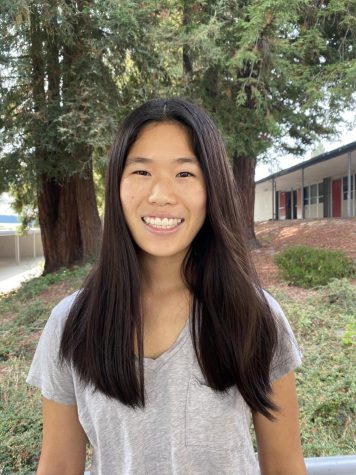Food Allergies Truly Challenging
May 17, 2018
The annual Food Allergy Awareness Week began on May 13. It is a week intended to spread information about people in the United States affected by food allergies.
Food allergy awareness cannot be limited to 1 week. It’s a condition that affects 15 million Americans every day, including at least 5.9 million adolescents, according to the Food Allergy Research & Education (FARE) website.
Having lived with allergies to dairy, eggs, nuts, and shellfish for my entire life, I understand the struggles of having food allergies and can empathize with those affected. While I (thankfully) have not had an anaphylaxis reaction, my allergies have impacted my life significantly– to the point that carrying antihistamine medicines and rarely accepting other people’s food are both 2nd nature.
Food allergies are not a trend or something to be taken lightly. With new healthy eating habits becoming the rage– paleo, vegan, vegetarian, gluten-free, and more –it has become easy to belittle those with medical dietary restrictions. I am not devaluing diets such as these; however, doesn’t an iced, sugar-free, vanilla latte with soy milk sound like a stereotypical healthy LA-esque coffee order? Yet this is likely something I’d order to ensure that it is dairy free.
Some think avoiding dairy is a “phase”. I remember attending a summer camp a few years ago where I was told by my counselor to participate in a game– catching Cheeto Puffs in a whipped-cream filled mouth- because the Cheetos don’t contain “real cheese.” I’ve been to restaurants where, after specifying that I didn’t want Feta cheese on my salad, my order has come with the cheese– and then I’m told by the waiter to just “pull the cheese off of it.” It’s frustrating and difficult to explain food allergies to people who don’t care to learn. I can’t just take the cheese off because I’m allergic.
Ordering restaurant food is always a long process. Whenever I go to a new restaurant, I have to check the menu online first, and once I’m there, I have to try to make arrangements with the waiter. While some are understanding, others are not. I know that my orders are always complicated, but I truly, sincerely wish that I didn’t have to deal with allergies, either.
I didn’t eat my own birthday cake for years. When I was young, vegan and gluten free options weren’t common. My aunt discovered Cherrybrook Kitchen’s baking mixes, and getting to bake my own chocolate cupcakes and vanilla sugar cookies felt like walking through the gates of paradise.
A few years ago, my family drove to Los Angeles to visit a completely vegan, gluten-free, nut-free bakery. It was incredible.
While I hate to sound whiny, I would like people to recognize that having food allergies does not solely affect eating. When I went to parties in elementary school, I always brought my own food. When people bring food for class celebrations, I can’t eat it. When I go to friends’ houses, I have my own dinner. At Halloween, it is not ghouls but chocolate that I’m most afraid of.
It’s awkward, to say the least.
“Do you want to get ice cream on the way home?” my friend’s parents will ask me. “Umm, yeah we can stop by, I don’t think I can eat anything there though,” I’ll reply. This usually sparks the “Oh no, I’m so sorry for you,” conversation, or worse: the “What in the world do you eat then?!”
I’d like for people to be more aware of those who grapple with this condition every day, often for their entire lives. We’re not trying to forbid you from eating peanuts at school; we’re not going gluten-free just because it’s “cool.” Throughout Food Allergy Awareness Week, and even in the weeks following, I simply ask that you are aware of the reality of living with an allergy.

